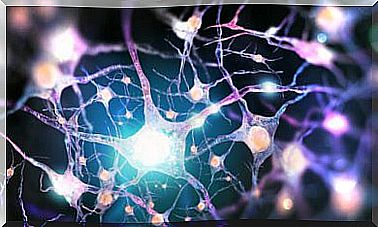How Can Psychology Help Us In The Treatment Of Tinnitus?

“If your ears ring, someone is speaking ill of you.” We have all heard this statement at one time or another, right? We may even believe that it is true or that, on the contrary, we consider it to be one more superstition … Now, have you ever wondered what that beep really is? Maybe yes, maybe no.
It is called tinnitus or tinnitus, and it is the perception of a sound without an external sound source that originates it. Who has not happened that we have ever heard that “beep” that this popular phrase speaks of? But it has disappeared, right? The problem comes when it stays there persistently… What can we do when we don’t stop hearing it and the doctors don’t give us any solutions?
When can we benefit from tinnitus treatment?
At first, the persistent perception of a sound without an external sound source causing it, may or may not cause discomfort. There are people to whom this happens who have it internalized as one more aspect of their life and they manage to “forget” about the noise, beep or buzz.

It seems that this “forgetting” the tinnitus and not perceiving it is something impossible, but no. Let’s take an example: when we live in a big city (or spend a lot of time in one), on a day-to-day basis we do not perceive the large amount of environmental noise that there is. It is not that the sounds disappear, but that we assume it as something normal and our attention is not focused on them, so that we do not perceive them unless we pay attention.
Then we realize that the traffic, people, construction sites, etc., are still there and, if we want, we hear them. This is what is intended to achieve when a person has persistent tinnitus. But this is not easy to achieve, and that is where psychological therapy for the treatment of tinnitus can make a difference.
Let’s start at the beginning, what do we call tinnitus or troublesome tinnitus? To one who interferes significantly with the life of those who suffer from it, in such a way that they constantly perceive it and with an intense associated emotional discomfort. Thus, there are psychological aspects that can be worked on in the treatment of tinnitus to change this.
What is the first thing the psychologist does in the treatment of tinnitus?
Thus, when a person comes for consultation because he wants to learn to manage tinnitus, the first thing the psychologist is going to do is carry out psychoeducational work and inform him accurately. To do this, he will explain how psychological aspects influence and how to work them properly, which will be learned throughout the therapy sessions. Once this is done, you have to get a proper rest.
The constant perception of a sound can affect sleep ; This is very important since if the person cannot sleep, it will be very difficult to work through everything else that is going to be raised in therapy. Who has not happened that has not given up after a night of little sleep? Next, various cognitive aspects that make the difference between a problematic tinnitus and one that is not will be studied.
They are attention, irrational beliefs (cognitive and metacognitive) and automatic thoughts. Starting with attention, a training is carried out so that you can fixate on other sounds and that your focus is no longer focused on the tinnitus. This is not easy, but it is achieved with perseverance! In addition, the treatment of tinnitus has to work on the associated beliefs and thoughts.
These tend to focus on finding a why in order to find a solution, or anticipating what activities may lead to a variation in the perceived intensity of tinnitus. The reality is that going round and round about this is not going to help us to coexist better with this problem, so we have to change them through cognitive and metacognitive restructuring.
But not only that, the treatment of tinnitus goes further
Another technique that is used and that helps us with both attention management and sleep problems is relaxation. It is important to learn how to use it to reduce both the associated emotional distress and the perception of tinnitus itself.
In addition, sometimes this tinnitus means that leisure and pleasant activities are put aside, so we have to be behaviorally activating and returning to them. You can also avoid noisy environments, such as bars and restaurants, for fear that our situation will get worse.

Due to this, once irrational beliefs and automatic thoughts have been restructured, we must work on gradual exposure and redo those things that help us socialize and regain our well-being. Finally, it is important to work on social support.
We must not forget that it is a very powerful tool to manage our discomfort, so it is important to learn to talk about our problems in an appropriate way, as well as to seek support from people who really empathize with us. Associations of those affected by tinnitus are a good resource for this … Let’s get our lives back!
Images courtesy of Chairulfajar, Nicolai Berntsen and Mario Azzi.









